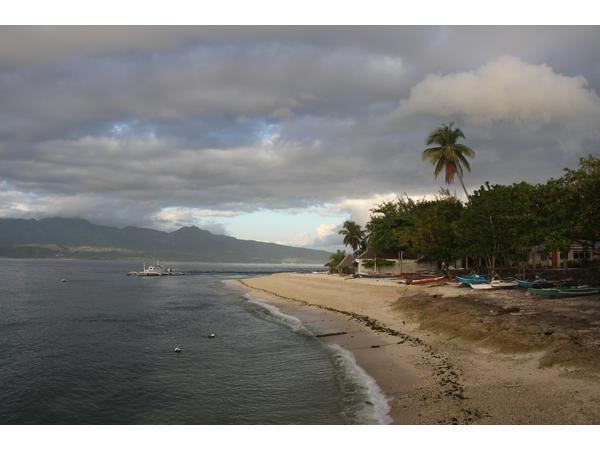Philippine Laws Governing Website Use

Did you know that there are several Philippine Laws that govern the use of websites? The Website Terms of Use cover both the website owners and the users.
Republic Act No. 10175 - Cybercrime Prevention Act of 2012
R.A. 10175 is crucial for website owners as the Cybercrime Prevention Act of 2012 covers the easy and intelligible access to, exchange and/or delivery of information, and the necessity to safeguard the integrity of computer and communication systems, networks, databases, the confidentiality, integrity, and availability of information and data stored in these databases, among others, from all forms of misuse, abuse or illegal access.
Website owners, and even users, should be aware of the offences under this Act, which include offenses against the confidentiality, integrity and availability of computer data and systems including illegal access, illegal interception, data/system interference, cybersquatting, and others.
The Act also defines the enforcement of penalties under the law for such conducts. Under the Act, the State will use “sufficient powers to effectively prevent and combat such offenses by facilitating their detection, investigation, and prosecution at both the domestic and international levels, and by providing arrangements for fast and reliable international cooperation.” (Chapter 1, Sec. 2).
As for prosecution and jurisdiction:
- “A prosecution under this Act shall be without prejudice to any liability for violation of any provision of the Revised Penal Code, as amended, or special laws.” (Chapter V, Sec. 21).
- The Regional Trial Court shall have jurisdiction over any violation of the provisions of this Act.
- Special cybercrime courts are designated, with specially trained judges who can handle cybercrime cases.
- The RTC also has jurisdiction over violations committed by Filipinos, regardless where the offense was committed.
As for international cooperation, Chapter VI, Sec. 22 states that “All relevant international instruments on international cooperation in criminal matters, arrangements agreed on the basis of uniform or reciprocal legislation, and domestic laws, to the widest extent possible for the purposes of investigations or proceedings concerning criminal offenses related to computer systems and data, or for the collection of evidence in electronic form of a criminal, offense shall be given full force and effect.”
Republic Act No. 8792 - Electronic Commerce Act
R.A. 8792 covers any kind of electronic data message and electronic document used in both commercial and non-commercial activities; and includes domestic and international dealings, transactions, arrangements, agreements, contracts, exchanges, storage of information, and retention of data. As a website owner, you have an obligation of confidentiality (Section 32(31)), which means that you cannot share any of the confidential information encoded or uploaded to your website. Only individuals or entities having a legal right to access their data have lawful access to your website. There will be a unique electronic key available exclusively to them (e.g. username and password).
As a website owner, you are responsible for choosing the most appropriate technological security method, type, or level to safeguard your data/database (Section 24(23)).
As R.A. 8792 applies to commercial activities, Section 25(24) highlights actions related to e-commerce activities.
This Act also includes the extent of your liability as a service provider. “Except as otherwise provided in this Section, no person or party shall be subject to any civil or criminal liability in respect of the electronic data message or electronic document for which the person or party acting as a service provider as defined in Section 5.” (Section 30(29)).
Republic Act No. 8293 – Philippine Copyright Law
R.A. 8293 is also another important Philippine law for website owners as it defines intellectual property. Intellectual property rights consist of (Section 4.1):
a) Copyright and Related Rights;
b) Trademarks and Service Marks;
c) Geographic Indications;
d) Industrial Designs;
e) Patents;
f) Layout-Designs (Topographies) of Integrated Circuits; and
g) Protection of Undisclosed Information.
Your website will most likely contain several of intellectual properties e.g. original text, artistic works, logo, so you need to be aware of your rights as the owner of these intellectual properties. R.A. 8293 also covers patent laws, voluntary license contract, assignment and transmission of rights, the law on trademarks, service marks and trade names, original works literary and artistic works and works not protected copyright or economic rights. It also sets out the limitations on protection and term of protection, and remedies for infringement.
Republic Act No. 10173 - Data Privacy Act of 2012 and its Implementing Rules and Regulations
R.A. 10173 is a very valuable law for website visitors or users as it secures a person’s fundamental right of privacy. It “..applies to the processing of all types of personal information and to any natural and juridical person involved in personal information processing including those personal information controllers and processors who, although not found or established in the Philippines, use equipment that are located in the Philippines, or those who maintain an office, branch or agency in the Philippines…” excluding some exceptions as set forth in Section 4.a to g.
The law covers how a user’s personal information is processed, the responsibilities of information controllers/processors, the rights of the data subject, security of personal information; and it also defines penalties. Section 6 of the act covers extraterritorial Application.
Republic Act No. 876 - Arbitration Law
The Website Terms of Use will most likely contain this line “all disputes relating to your access to the website will be governed by the laws of the Republic of the Philippines”. This arbitration clause provides that all disputes arising from the contract shall be submitted to arbitration in the Philippines.
R.A. No. 876 applies to domestic arbitration; while R.A. No. 9285, which applies to international arbitration.









